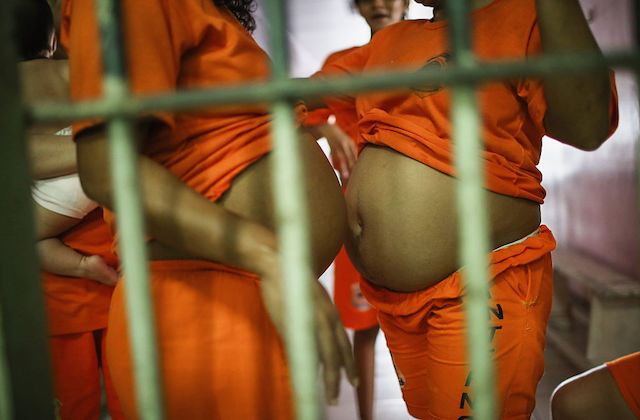Decades ago, it was commonplace for American jails and prisons to shackle incarcerated people while they gave birth. Over the last 20 years, however, 22 states passed laws against the inhumane practice. Now, even more states are drafting measures to leave the practice behind.
According to ABC News, Utah and "at least three other states" are focused on the treatment of pregnant women behind bars. Although many states already adhere to policies against shackling, ABC reports that, "without a law, it’s harder to stop a practice they condemn as dangerous and inhumane." Democratic state Representative Stephanie Pitcher, who sponsored the Utah measure, told the news outlet, "For me, it’s just a fundamental issue of dignity. A woman deserves dignity in childbirth."
A report from Prison Policy Initiative called Women’s Mass Incarceration: The Whole Pie 2018 shows that the rate of incarceration for women has grown at twice that of men in recent decades. It also points out that Black women—who make up roughly 14 percent of jailed women—"are disproportionately subject to incarceration."
According to the American Civil Liberties Union (ACLU), more than 200,000 women are now behind bars in jails and prisons. According to its findings:
rnt
Pregnancy in prison is never easy. In addition to the normal joys, pains and hormonal fluctuations that all pregnant people experience, pregnant prisoners have to worry about unsympathetic correctional officers blocking their access to healthcare, not having necessary accommodations, being left hungry, and even having to give birth in the prison without proper care…. Shackling poses special harms to pregnant people. It can throw them off-balance or prevent them from catching themselves if they fall, potentially harming both the prisoner and the fetus. It can also cause dangerous blood clots.
Although Utah state prisons condemned the practice of shackling women during childbirth in 2015, Pitcher told the outlet that doctors in the area have seen signs that it’s still happening, even as recently as this year. The bill, according to ABC, would apply to prisons and local jails. It already passed the state House and is now being considered by the Senate.
